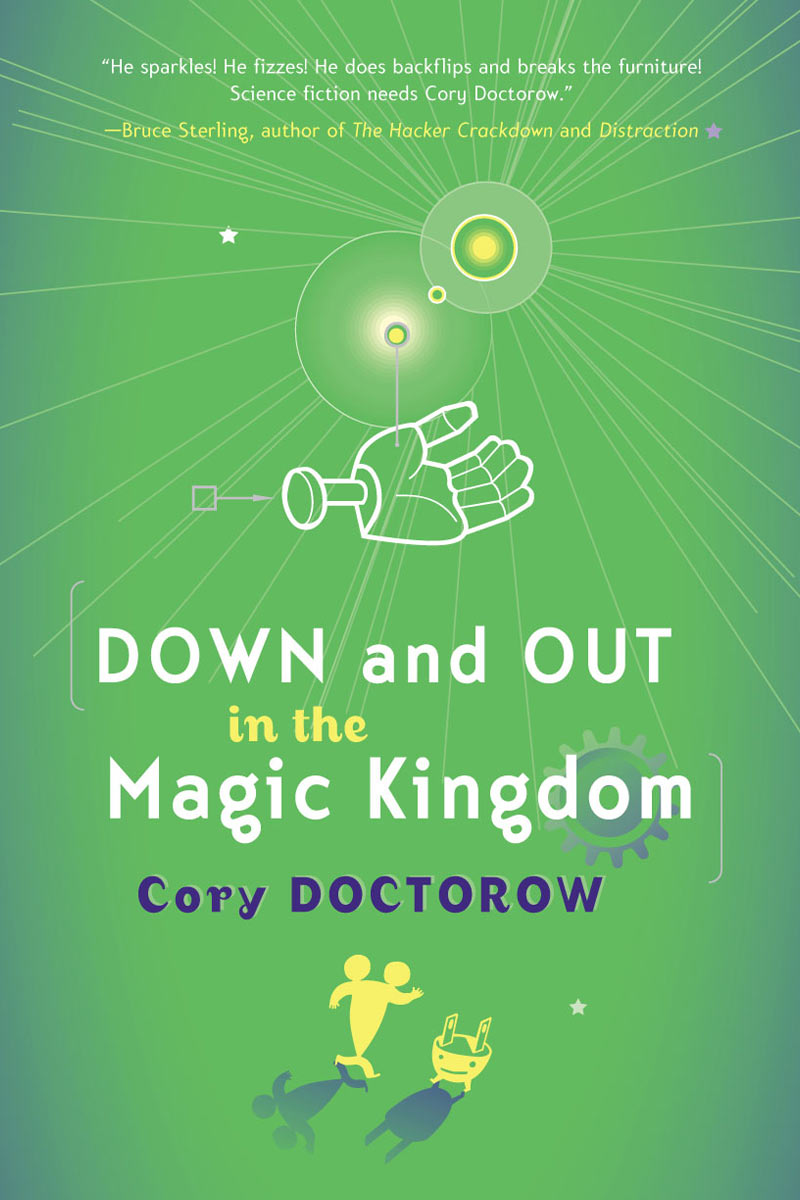Here’s a reading of my recent Locus column, Ten Years On, in which I reflect on my first decade as a novelist and discuss a possible further volume related to Down and Out in the Magic Kingdom, my first-ever novel:
I never thought I’d write a sequel. The allure of writing books has always been the experience of discovering and exploring a place and people that have been cooked up by my imagination. By the time I’ve squeezed the book out through my fingertips, I’m generally pretty sick of that place and those people, and frankly glad to be shut of them. But a sequel to Little Brother happened, and when it was done, I discovered that I’d thoroughly enjoyed it. It was like discovering that a whole gang of close friends I’d lost touch with after high-school had stayed tight, and were happy to welcome me back into their bosom. Thoroughly enjoyed it? It was amazing.
Back to February 2013. When my publisher told me that the book would come out on Feb 5, I immediately flashed back on Feb 3, 2003, ten years and two days before the publication of Homeland, when my first novel, Down and Out in the Magic Kingdom, was published. D&O was all kinds of firsts: the first novel I’d ever written, the first book of mine Tor ever published, and the first Creative Commons licensed novel – ever. It’s shocking to think that an entire decade has roared past in the interim, with 14 more books in print, and another two (Information Doesn’t Want to Be Free, a non-fiction book; and Anda’s Game, a full-length graphic novel from First Second) in the pipeline.
Realizing that I was a decade into my writing career literally staggered me. I missed a step while walking down the street and nearly fell over.
Mastering by John Taylor Williams: wryneckstudio@gmail.com
John Taylor Williams is a audiovisual and multimedia producer based in Washington, DC and the co-host of the Living Proof Brew Cast. Hear him wax poetic over a pint or two of beer by visiting livingproofbrewcast.com. In his free time he makes “Beer Jewelry” and “Odd Musical Furniture.” He often “meditates while reading cookbooks.”
MP3 Link
































